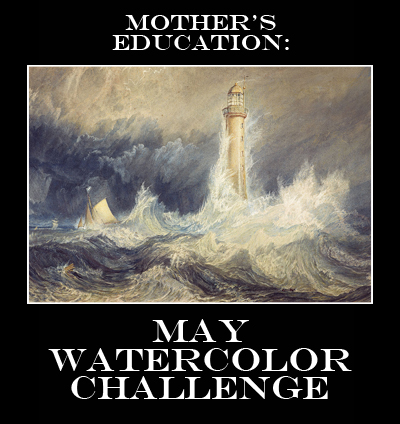"An educated conscience is a far rarer possession than we imagine ... we believe that Latin and Greek must be taught, but that morals come by nature."
-Charlotte Mason,
Teaching in the Branches
Well
do I remember an experience while speaking to a group of missionaries.
After I had invited questions, one elder stood. With tears in his eyes,
he asked, “Why did Jesus have to suffer so much?” I asked the elder to
open his book of hymns and recite words from “How Great Thou Art.” He
read:
Then
I asked this elder to read from “Reverently and Meekly Now.” These
words are particularly poignant because they are written as the Lord
would express His own answer to the very question that had been asked:
Jesus suffered deeply because He loves us deeply! He wants us to repent and be converted so that He can fully heal us.
-Russell M. Nelson,
Jesus Christ -- The Master Healer, October Conference 2005
On the other hand, it is well that they should understand the limitations of authority. Even the divine authority does not compel. It indicates the way and protects the wayfarer and strengthens and directs self-compelling power. It permits a man to make free choice of obedience rather than compels him to obey. In the moral teaching of children arbitrary action almost always produces revolt.
-Charlotte Mason,
Teaching in the Branches
"To the Editor of the Times & Seasons:
Sir:—Through the medium of your paper, I wish to correct an error among
men that profess to be learned, liberal and wise; and I do it the more
cheerfully, because I hope sober-thinking and sound-reasoning people
will sooner listen to the voice of truth, than be led astray by the vain
pretensions of the self-wise. The error I speak of, is the definition
of the word “Mormon.” It has been stated that this word was derived from
the Greek word “mormo.” This is not the case. There was no Greek or
Latin upon the plates from which I, through the grace of God, translated
the Book of Mormon. Let the language of that book speak for itself. On
the 523rd page, of the fourth edition, it reads: “And now behold we have
written this record according to our knowledge in the characters, which
are called among us the “Reformed Egyptian,” being handed down and
altered by us, according to our manner of speech; and if our plates had
been sufficiently large, we should have written in Hebrew: but the
Hebrew hath been altered by us, also; and if we could have written in
Hebrew, behold ye would have had no imperfection in our record, but the
Lord knoweth the things which we have written, and also, that none other
people knoweth our language; therefore he hath prepared means for the
interpretation thereof.”
Here then the subject is put to silence,
for “none other people knoweth our language,” therefore the Lord, and
not man, had to interpret, after the people were all dead. And as Paul
said, “the world by wisdom know not God,” so the world by speculation
are destitute of revelation; and as God in his superior wisdom, has
always given his Saints, wherever he had any on the earth, the same
spirit, and that spirit, as John says, is the true spirit of prophecy,
which is the testimony of Jesus, I may safely say that the word Mormon
stands independent of the learning and wisdom of this generation.
—Before I give a definition, however, to the word, let me say that the
Bible in its widest sense, means good; for the Savior says according to
the gospel of John, “I am the good shepherd;” and it will not be beyond
the common use of terms, to say that good is among the most important in
use, and though known by various names in different languages, still
its meaning is the same, and is ever in opposition to “bad.” We say from
the Saxon, “good”; the Dane, “god”; the Goth, “goda”; the German,
“gut”; the Dutch, “goed”; the Latin, “bonus”; the Greek, “kalos”; the
Hebrew, “tob”; and the Egyptian, “mon.” Hence, with the addition of
“more,” or the contraction, “mor,” we have the word “mormon”; which
means, literally, “more good.”
Yours,
JOSEPH SMITH.
(May 15, 1843.) T&S 4:194.
From the Teachings of the Prophet Joseph Smith, p299-300
The truth made sense; it tasted good. It wore well, like an old coat.
-Joseph and Emma: A Love Story, vol. 1, p 37
We should begin by recognizing the reality that just because something is good is not a sufficient reason for doing it. The number of good things we can do far exceeds the time available to accomplish them. Some things are better than good, and these are the things that should command priority attention in our lives.
"Be courteous to all but intimate with few, and let those few be well tried before you give them your confidence. True friendship is a plant of slow growth, and must undergo and withstand the shocks of adversity before it is entitled to the appellation."
-George Washington
God can't use you as He desires until you have learned to be absolutely obedient. Many have faith, and many have love, but few have the fierce self-discipline to be completely obedient.
-Joseph and Emma: A Love Story, vol.1, p232
Stern lawgiver! yet thou dost wear
The Godhead's most benignant grace;
Not know we anything so fair
As the smile upon thy face;
Flowers laugh before thee on their beds;
And fragrance in thy footing treads;
Thou dost preserve the stars from wrong;
And the most ancient heaves, through thee, are fresh and strong.
In the matter of the Ideas that inspire the virtuous life, we miss much by our laissez-aller way of taking things for granted.
-Charlotte Mason in Teaching in the Branches
In the Arena Chapel at Padua, we have Giotto's Faith and Infidelity,
Love and Envy, Charity and Avarice, Justice and Injustice, Temperance
and Gluttony, Hope and Despair, pictured forth in unmistakeable
characters for the reading of the unlearned and ignorant. We have the
same theme, treated with a difference, in what Mr. Ruskin calls the
"Bible of Amiens," where Humility and Pride, Temperance and Gluttony,
Chastity and Lust, Charity and Avarice, Hope and Despair, Faith and
Idolatry, Perseverance and Atheism, Love and Discord, Obedience and
Rebellion, Courage and Cowardice, Patience and Anger, Gentleness and
Churlishness,--in pairs of quatre-foils, an upper and a lower, under
the feet of each Apostle, who was held to personify the special virtue.
But we know nothing about cardinal virtues and deadly sins. We have no
teaching by authoritative utterance strong in the majesty of virtue. We
work out no schemes of ethical teaching in marble, we paint no scale of
virtues on our walls, and no repellent vices. Our poets speak for us it
is true; but the moral aphorisms, set like jewels though they be on the
forefinger of time, are scattered here and there, and we leaven it
serenely to happy chance whether our children shall or shall not light
upon the couple of lines which should fire them with the impulse to
virtuous living. It may be said that we neglect all additional ethical
teaching because we have the Bible; but how far and how do we use it?
Here we have indeed the most perfect ethical system, the most inspiring
and heart-enthralling, that the world has ever possessed; but, alas, it
is questionable whether we attempt to set a noble child's heart beating
with the thought that he is required to be perfect as his Father which
is in Heaven is perfect.
It is time we set ourselves seriously to this work of moral education
which is to be done, most of all, by presenting the children with high
ideals. "Lives of great men all remind us we can make our lives
sublime," and the study of the lives of great men and of the great
moments in the lives of smaller men is most wonderfully inspiring...
-Charlotte Mason in Teaching in the Branches


























